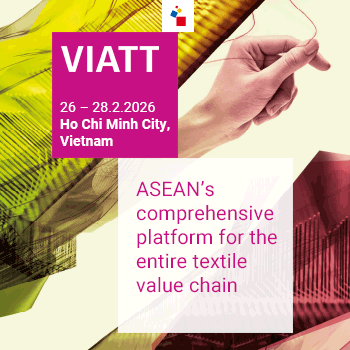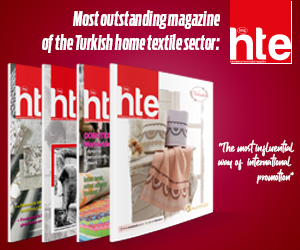* Andrea Favaretto Rubelli: Proposte must be a driving and proactive force geared towards textile excellence.
Interviewing Andrea Favaretto Rubelli does not only mean asking questions to an absolute protagonist of the worldwide textile scene. It means sharing views and ideas with someone who has a global observatory on the entire furnishing sector like few others in the world. The Rubelli company was set up in the nineteenth century, and this is the 5th generation of family entrepreneurs in textile publishing. Still, it would be too reductive to describe in this way this Venetian enterprise of excellence. The Rubellis are for sure textile publishers, but they also own a weaving mill that was refurbished just over two years ago in Cucciago, in the very heart of the Como silk district, where they produce large contract projects. Rubelli Casa and Donghia are the furniture manufacturing brand names and collections that have quickly obtained great success in the United States as well as internationally. Andrea Favaretto Rubelli mirrors the universe of buyers visiting Proposte every year. We met him in January at the end of a series of exhibitions that was quite exhausting. His analysis was clear and not entirely negative: “We have been working well – he explained – fewer buyers, but good quality business”. In short, our interlocutor is not pessimistic, in spite of the clouds that are gathering on the horizon following the coronavirus epidemic, whose magnitude and repercussions on the worldwide economy cannot still be fully assessed. We asked him where he thinks the textile market will be heading in the near future and how he judges Proposte from the buyer/visitor’s point of view.
Concerning the first topic, Rubelli gives a clear-cut and concrete statement: “Today the western world’s approach to textile products has radically changed. There is a very strong and almost obsessive demand for performance that is not only limited to the Contract area. Designers, architects and planners, even in the residential sector, all speak the common language of performance and sustainability. Fortunately, however, there is still an important niche of customers worldwide who are looking for silk and luxury products. At Rubelli, we are determined to meet the demand for more performance without giving up the niche of clients who are looking for silk products and beauty without compromise. It is a kind of “run with the hare and hunt with the hounds” attitude, meaning that on the one hand we intend to meet the demand for more performance, while on the other we are trying to make clients acquainted with more enticing products that will make them overcome the limitations that an excessive demand for performance implies. On top of this, the global market requires flexibility and speed, therefore service at all levels. I will never stop considering Italian creativity as a winning tool, but I feel that at this stage this is almost taken for granted, it is indispensable but not enough. There is still a lot to do in the field of sustainability, recycling, reusing and traceability. Our sector has been dealing with these subjects for only a short time and this is precisely why we must consider everything from the point of view of the supply chain. We need signals, indicators and indications coming from the production side. I don’t want to say aesthetic features are not important but at this stage, failing to realize that the entire market, from production to final consumption, is looking for meaningful, content-laden answers would be a mistake”, as sustainability seems to be the only possible option going forward. The key players we interviewed from last October to date have all stressed the importance of product and process sustainability. More than a trend this represents a radical change in the way we approach the market.
Answering our second question Andrea Favaretto Rubelli affirms: “As far as Proposte is concerned, I can firmly say that the exhibition is certainly an outstanding and irreplaceable event, that will have to continue following closely the evolution of the global market in order to maintain its leadership. I have just attended the inauguration of Milano Unica (publisher’s note: a Milanese prominent event devoted to fashion fabrics for the clothing sector) – and I noticed the high-quality level of the Trends area (“Tendenze”) created for this event. I would like to see something similar at Proposte, a synthesis of the most outstanding themes displayed through the exhibitors’ collections, stressing Proposte’s guiding role and providing indications on the short-term future of textiles for the furnishing sector. Guidance should be the key contribution of todays’ fairs and exhibitions. It is no longer just a matter of business, but rather a matter of sharing a common project-oriented culture throughout the entire sector. For the same reason, Proposte must be truly daring in adopting strict selection criteria. These have already contributed to the great success of the event over the years. Going forward, the exhibitors’ evaluation system could be more closely linked to the system of European environmental certifications. Initially this could happen in the form of a soft adjustment scheme and then gradually become more compliant. This process would make a valuable contribution to the cause of sustainability and would encourage producers in the textile/furniture world to concretely invest in it”.







